Share your College of Liberal Arts and College of Arts & Sciences Memories
As we celebrate the 150th anniversary of our founding (1873–2023), we invite graduates to share memories of the College of Arts & Sciences. How did your liberal arts and sciences experience make a difference in your life?
Gerald Gitner (CAS`66), History
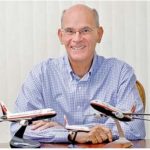
I am living proof that there is life after the College of Arts and Sciences in the business world. Coming to my career from a degree in history rather than business or engineering, I had a very different perspective—fine arts, music, languages. I was always interested in all that. I was analytical. I knew how to think and question. One of my mantras is: ‘it’s not the answer, it’s the question that is critical.’ If you don’t ask the right question, your answers are worthless. In the College of Arts and Sciences we learned how to ask the right questions. —Gerald Gitner (CAS`66), History, former aviation executive
Nat Etrog (CAS`67), Sociology

My BU experience prepared me for a life of independent thinking. One of my favorite memories from my time at BU is playing ping-pong at new Sherman Union.
—Nat Etrog (CAS`67), Sociology, former
Bonnie (Turen) Feld (CAS`73), Political Science and History
 BU awarded me with the power of me and the resilience and confidence to grow and tackle ventures. —Bonnie (Turen) Feld (CAS`73), chair, Boston University Arts & Sciences’ Dean’s Advisory Board
BU awarded me with the power of me and the resilience and confidence to grow and tackle ventures. —Bonnie (Turen) Feld (CAS`73), chair, Boston University Arts & Sciences’ Dean’s Advisory Board
Judith Hurwitz (CAS`73), English
 My education helped me to think critically and gain insights that helped prepare me for my career. —Judith Hurwitz (CAS`73), strategy and research consultant
My education helped me to think critically and gain insights that helped prepare me for my career. —Judith Hurwitz (CAS`73), strategy and research consultant
Madeline Paladino (CAS'74), Anthropology
 As I switched majors from biology to anthropology, I received the best of both worlds: microscopic views of living organisms and macroscopic views of world societies. Life at BU during the Vietnam Era firmed my convictions that a peaceful world is what I should strive for in my daily life, long as it has been. I finished my education back in NYC, as I committed to my relationship which resulted in marriage in 1976. Though not a BU grad, I am a half-BU grad, for which I will alway be grateful and proud.
As I switched majors from biology to anthropology, I received the best of both worlds: microscopic views of living organisms and macroscopic views of world societies. Life at BU during the Vietnam Era firmed my convictions that a peaceful world is what I should strive for in my daily life, long as it has been. I finished my education back in NYC, as I committed to my relationship which resulted in marriage in 1976. Though not a BU grad, I am a half-BU grad, for which I will alway be grateful and proud.
—Madeline Paladino (CAS`74), Anthropology
Janet Gershen-Siegel (CAS'83), Philosophy
 My philosophy degree has stood me in good stead. I tend to be the logical person on the team (AKA the voice of doom) — but it’s because I can just plain see all the angles. I had a hard time deciding what I wanted to study, cycling through two majors before hitting on philosophy. Logic was the first class that truly felt like, hey, this fits me. I learned there will always be a need for the liberal arts. STEM is far from the only valid career or life path.
My philosophy degree has stood me in good stead. I tend to be the logical person on the team (AKA the voice of doom) — but it’s because I can just plain see all the angles. I had a hard time deciding what I wanted to study, cycling through two majors before hitting on philosophy. Logic was the first class that truly felt like, hey, this fits me. I learned there will always be a need for the liberal arts. STEM is far from the only valid career or life path.
—Janet Gershen-Siegel (CAS`83), Philosophy
David Shein (CAS'89, MED'92), Medical Science
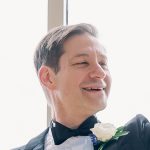 While my medical school experience was by its nature very focused, my underlying liberal arts experience helped me explore topics beyond the formal rigors of hard science. As I have watched medical technology proliferate, I am increasingly certain that it will never bridge the chasm between the science and art of medicine. The CLA classes that I took to explore humanities and the arts are foundational to my humanistic approach to the practice of medicine today. —David M Shein (CAS’89, MED’92), Medical Director at Wellesley Internal Medicine and Adjunct Associate Professor at the New England College of Optometry in Boston
While my medical school experience was by its nature very focused, my underlying liberal arts experience helped me explore topics beyond the formal rigors of hard science. As I have watched medical technology proliferate, I am increasingly certain that it will never bridge the chasm between the science and art of medicine. The CLA classes that I took to explore humanities and the arts are foundational to my humanistic approach to the practice of medicine today. —David M Shein (CAS’89, MED’92), Medical Director at Wellesley Internal Medicine and Adjunct Associate Professor at the New England College of Optometry in Boston
Shannon Kleiber (CAS’91), English
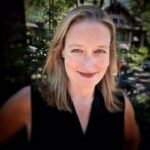 I have produced shows and interviewed people about topics including bees, grief, political writing, witches through history and the human body. We interview philosophers, economists, scientists, artists, and historians. A background in liberal arts helped fuel my curiosity about the entire world around us, which is vital for my job as a journalist. —Shannon Kleiber (CAS’91), Senior Producer and Interviewer for “To the Best of Our Knowledge,” a national public radio show
I have produced shows and interviewed people about topics including bees, grief, political writing, witches through history and the human body. We interview philosophers, economists, scientists, artists, and historians. A background in liberal arts helped fuel my curiosity about the entire world around us, which is vital for my job as a journalist. —Shannon Kleiber (CAS’91), Senior Producer and Interviewer for “To the Best of Our Knowledge,” a national public radio show
Scott Webster (CAS`93), Religion
 I was a naive kid when I first set foot on the BU campus. A broad liberal arts education opened my eyes to the world, literally and figuratively. Every student has their own journey, but a liberal arts education is a worthy foundation for everyone. The faculty in the Economics Department taught me how to think logically and critically, which prepared me well for my career and my life as a whole. BU made me the person that I am today. — Scott Webster (CAS`93), retired attorney
I was a naive kid when I first set foot on the BU campus. A broad liberal arts education opened my eyes to the world, literally and figuratively. Every student has their own journey, but a liberal arts education is a worthy foundation for everyone. The faculty in the Economics Department taught me how to think logically and critically, which prepared me well for my career and my life as a whole. BU made me the person that I am today. — Scott Webster (CAS`93), retired attorney
Jennifer Tolman Schwartzman (CAS`96), Religion
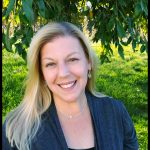
As a Religion major at BU, I was exposed to a wide array of perspectives. The ability to see the world through the eyes of others—a core theme that ran through the Religion coursework—has been an integral part of my career path as an educator and community connector. It is also the key component to my current work… A memory that stands out—and something I recalled often when my career took my into informal and experiential education—is from a moment early in my time at BU. In a comparative religion class, a student presented an idea that challenged the professor’s lesson. Instead of evading or arguing the comment, the professor pulled up a chair and began asking questions. The student had a religious background that was foreign to nearly everyone in the room and, in that instant, became our teacher. The professor let the remaining hours of that class be an open forum for us to learn from a fellow student. I have to admit, I can no longer recall the class conversation itself, but I will never forget the moment when a teacher let us meet him as a scholar and a student emerged as a leader. I am now the parent of three teenage sons and have been touring a variety of extraordinary colleges. I remain convinced there is something very special about BU that fosters this type of learning environment. —Jennifer Tolman Schwartzman (CAS`96), Chief Operating Officer, Dignity Grows, Inc.
Brenda Levy (CAS`00), Biology
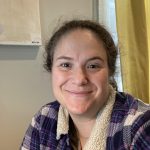
College was the start of who I was going to become. BU CAS gave me a world of possibilities, there were so many things to choose from. I knew I was going to be pre-med, but didn’t want to limit myself from the very beginning, so got a minor in religion, which definitely played a part in shaping the inclusive world view I have today, and which helps me to be a better physician. I am grateful for all the amazing people in the Biology department, especially Dr Celenza, my thesis mentor and all the awesome people in his lab. Thank you Dr Celenza for your generosity of time, knowledge and kindness! —Brenda Levy (CAS`00), Pediatrician, Boston Medical Center
Jennifer (Templeton) Simpson (CAS`00), English
 Dr. Robert Levine was my advisor and he had a tremendous impact on my approach to academics. I chose to be an English major because I was not a very good writer and knew that this would be an important skill to master. Once he saw my level of commitment to improvement, he spent the time in helping me develop as a writer. He was appropriately challenging and patient allowing me to rewrite as many times as I needed. I think that my writing skills have opened up doors to me and gave me a greater voice than I otherwise would have had. —Jennifer (Templeton) Simpson (CAS`00), former chair of the John Templeton Foundation
Dr. Robert Levine was my advisor and he had a tremendous impact on my approach to academics. I chose to be an English major because I was not a very good writer and knew that this would be an important skill to master. Once he saw my level of commitment to improvement, he spent the time in helping me develop as a writer. He was appropriately challenging and patient allowing me to rewrite as many times as I needed. I think that my writing skills have opened up doors to me and gave me a greater voice than I otherwise would have had. —Jennifer (Templeton) Simpson (CAS`00), former chair of the John Templeton Foundation
Alyssa Baker (CAS '01, CFA '08), Art History
 My CAS experience led me to make connections with people that I would have not met otherwise. Coming from a small town in Pennsylvania, I loved meeting other students from all over the country and the world. Those relationships allowed me to have meaningful conversations and experiences I would not have had had I not been in the program. I was inspired by my professors who helped me learn to be curious and make connections. By April of my senior year, I had reached my starting career goal and landed a full time job at an art gallery on Newbury Street. One of my favorite memories was actually my orientation experience. I made some of my closest BU friends at that time and knew that I had made the right choice in coming to Boston University. It was and exciting time meeting so many people with my shared values and interests. —Alyssa Baker (CAS ’01, CFA ’08), Director of Graduate Affairs, Boston University Arts & Sciences
My CAS experience led me to make connections with people that I would have not met otherwise. Coming from a small town in Pennsylvania, I loved meeting other students from all over the country and the world. Those relationships allowed me to have meaningful conversations and experiences I would not have had had I not been in the program. I was inspired by my professors who helped me learn to be curious and make connections. By April of my senior year, I had reached my starting career goal and landed a full time job at an art gallery on Newbury Street. One of my favorite memories was actually my orientation experience. I made some of my closest BU friends at that time and knew that I had made the right choice in coming to Boston University. It was and exciting time meeting so many people with my shared values and interests. —Alyssa Baker (CAS ’01, CFA ’08), Director of Graduate Affairs, Boston University Arts & Sciences
Alden Burnham (CAS'16), History
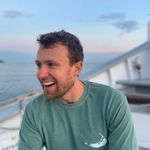 My career thus far has meandered through the public school teaching system, developmental psychology research, and curriculum design. Throughout these different roles, I have always maintained two tenets: a commitment to arguing from evidence and a passion for supporting children’s development. The former is something I attribute to the rigorous education I got as a Boston University history major. My coursework helped me evaluate and compare different interpretations of historical artifacts, which has been extremely valuable to me as an educator and an analyst. —Alden Burnham (CAS’16), data analyst, Norwalk Public Schools
My career thus far has meandered through the public school teaching system, developmental psychology research, and curriculum design. Throughout these different roles, I have always maintained two tenets: a commitment to arguing from evidence and a passion for supporting children’s development. The former is something I attribute to the rigorous education I got as a Boston University history major. My coursework helped me evaluate and compare different interpretations of historical artifacts, which has been extremely valuable to me as an educator and an analyst. —Alden Burnham (CAS’16), data analyst, Norwalk Public Schools
Madeline Brady (CAS'17), History and Political Science
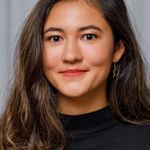 Studying History at BU allowed me to explore a number of unexpected topics ranging from the history of environmental politics, food, fashion, witchcraft and propaganda. The opportunity to pursue the topics and questions that I found interesting helped me to identify a passion for public policy. By digging through the archives and condensing complex readings into one-pagers, I developed foundational research skills that are important to my work today. Most importantly, studying history taught me to challenge the status quo by asking how and why social and political structures exist in their current form. —Madeline Brady (CAS’17), Twitter
Studying History at BU allowed me to explore a number of unexpected topics ranging from the history of environmental politics, food, fashion, witchcraft and propaganda. The opportunity to pursue the topics and questions that I found interesting helped me to identify a passion for public policy. By digging through the archives and condensing complex readings into one-pagers, I developed foundational research skills that are important to my work today. Most importantly, studying history taught me to challenge the status quo by asking how and why social and political structures exist in their current form. —Madeline Brady (CAS’17), Twitter
Nico Quesada (CAS'19), History of Art and Architecture and Archaeology
 My time at the College of Arts and Sciences was instrumental in helping me develop my passion for understanding human experience through our shared cultural history. I learned how to think critically about the media and scholarship I consume and how to craft well-researched arguments. I am especially grateful to the faculty of HAA and Archaeology who taught me what good mentorship is. This has colored how I serve my students and co-workers as I have worked in Higher Education administration over the past couple of years…. The interdisciplinary nature and potential of BU Arts & Sciences is a boon to all students at BU. I think that students leave with more confidence and greater skills to integrate their passions and interests in their daily life no matter where it ultimately takes them. BU Arts & Sciences alums are empowered to be compassionate thinkers, bridge-builders, and strong leaders. —Nico Quesada (CAS’19), Society of Fellows Program Associate, Boston University Arts & Sciences
My time at the College of Arts and Sciences was instrumental in helping me develop my passion for understanding human experience through our shared cultural history. I learned how to think critically about the media and scholarship I consume and how to craft well-researched arguments. I am especially grateful to the faculty of HAA and Archaeology who taught me what good mentorship is. This has colored how I serve my students and co-workers as I have worked in Higher Education administration over the past couple of years…. The interdisciplinary nature and potential of BU Arts & Sciences is a boon to all students at BU. I think that students leave with more confidence and greater skills to integrate their passions and interests in their daily life no matter where it ultimately takes them. BU Arts & Sciences alums are empowered to be compassionate thinkers, bridge-builders, and strong leaders. —Nico Quesada (CAS’19), Society of Fellows Program Associate, Boston University Arts & Sciences
Alex Farra (CAS`20), Computer Science
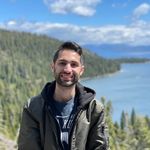 BU CS provided me with an excellent foundation for beginning my career. I learned all the fundamental skills I needed to be successful, but I was also provided with a wonderful community of peers and professors. Professors went out of their way to support their students and provide us with opportunities both at BU and externally. Similarly, the student clubs were an integral piece of my time at BU and they provided me with an incredible network of current students and alumni that I’m still in touch with. I genuinely don’t think I would be where I am today without the support and mentoring from the BU CS community. —Alex Farra (CAS`20), software engineer, Snowflake
BU CS provided me with an excellent foundation for beginning my career. I learned all the fundamental skills I needed to be successful, but I was also provided with a wonderful community of peers and professors. Professors went out of their way to support their students and provide us with opportunities both at BU and externally. Similarly, the student clubs were an integral piece of my time at BU and they provided me with an incredible network of current students and alumni that I’m still in touch with. I genuinely don’t think I would be where I am today without the support and mentoring from the BU CS community. —Alex Farra (CAS`20), software engineer, Snowflake
Alexis Bauer (CAS`22), History
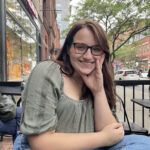 For me, being a history major granted me not only critical skills like writing and analytical thinking, but it granted me a new perspective on everyday life, including public health. During my undergraduate studies, I was able to complete my own research relating to the Smallpox Eradication Program, and it encouraged me to examine how the past was reflecting onto current events, most clearly the ongoing COVID-19 pandemic. Honestly, this is just one of many examples where I think my critical understanding of the past I gained from studying history was able to be applied. —Alexis Bauer (CAS`22), MA student, Boston University School of Public Health
For me, being a history major granted me not only critical skills like writing and analytical thinking, but it granted me a new perspective on everyday life, including public health. During my undergraduate studies, I was able to complete my own research relating to the Smallpox Eradication Program, and it encouraged me to examine how the past was reflecting onto current events, most clearly the ongoing COVID-19 pandemic. Honestly, this is just one of many examples where I think my critical understanding of the past I gained from studying history was able to be applied. —Alexis Bauer (CAS`22), MA student, Boston University School of Public Health